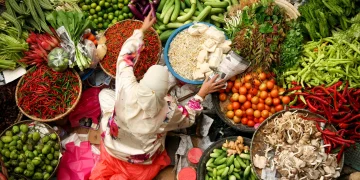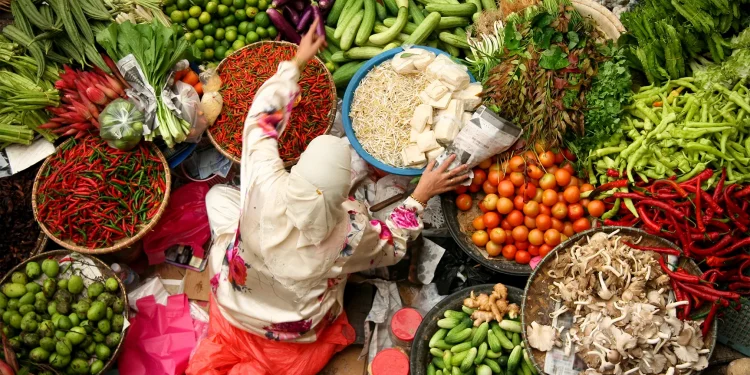As Malaysia contends with the impact of the southwest monsoon, farmers are struggling with reduced yields and increased costs due to adverse weather and rising input prices.
Malaysia’s vegetable farmers are grappling with significant challenges as they face uncertain crop yields caused by the ongoing southwest monsoon. Lim Ser Kwee, Chairman of the Federation of Vegetable Farmers Association of Malaysia, has voiced concerns about the adverse effects of current weather conditions on vegetable production. According to MetMalaysia’s forecasts, the southwest monsoon, characterized by hot and dry conditions, is expected to persist until mid-September. This prolonged period of dry weather is predicted to alter rainfall patterns, leading to reduced precipitation and heightened difficulties for vegetable cultivation.
The extreme heat, with temperatures reaching up to 35°C, has led to rapid water evaporation, severely affecting crops such as long beans. These conditions have caused early signs of distress in the form of yellowing leaves, illustrating the direct impact of excessive heat on vegetable growth and yield. The lack of sufficient rainfall has exacerbated irrigation challenges, leaving many farmers struggling to maintain adequate water levels for their crops.
In addition to weather-related issues, farmers are contending with rising costs for essential inputs, including fuel, fertilizers, and pesticides. These increased costs further strain the financial stability of vegetable farming operations. Assoc Prof Siti Noor Hajjar Md Latip from Universiti Teknologi Mara’s Plantation and Agrotechnology Faculty explains that hot and dry conditions enhance photosynthesis, transpiration, and respiration processes in vegetables, which in turn diminishes productivity and yield.
The combined effect of high temperatures and limited rainfall poses significant risks to crop supply and food security. Extreme weather events can disrupt vegetable price stability, making it crucial for farmers and stakeholders to explore alternative methods to ensure consistent food availability. Prof Siti Noor Hajjar emphasizes the need for effective storage systems to preserve vegetable freshness, quality, and quantity, which can play a key role in stabilizing prices and supporting food security.
As the agricultural sector navigates these challenges, there is a growing call for innovative approaches and resilience strategies to mitigate the impact of adverse weather conditions and rising costs on vegetable production.































